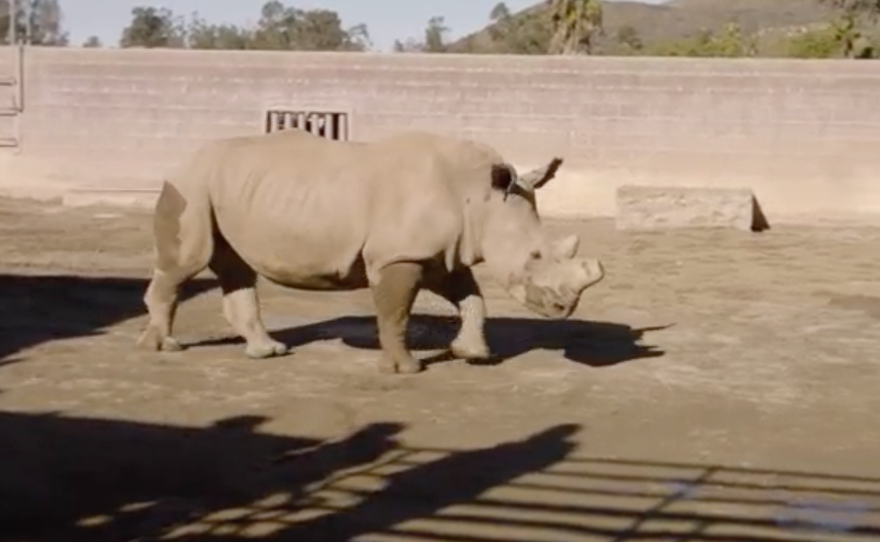An international team of leading reproductive and genetic experts are examining the reproductive systems of six southern white rhinoceros brought to San Diego in an attempt to save their northern white rhino cousins, the San Diego Zoo Safari Park announced Thursday.
With just three northern white rhinos left in the world, San Diego Zoo Global officials and scientists are hoping that modern techniques will help them use stored DNA to create embryos to implant in the southern species, which would serve as surrogate mothers.
Conservationists hope such techniques can eventually be transferred to other endangered species.
"San Diego Zoo Global is pleased to welcome leading scientists from around the world to San Diego this week, to take very important steps of a groundbreaking conservation initiative to save the northern white rhino," said Randy Rieches, curator of mammals at the San Diego Zoo Safari Park.
"San Diego Zoo Global has been working on rhino conservation initiatives for many years, and to join forces with so many prestigious partners working towards the same goal is thrilling," Rieches said. "Conducting the reproductive exams on these beautiful, important southern white rhinos is the first step to saving one rhino species from extinction."
The scientists here this week represent the Leibniz Institute for Zoo and Wildlife Research in Berlin, Zoo Dvur Kralove of the Czech Republic, Ol Pejeta Conservancy in Kenya, San Diego Zoo Global and other international and domestic institutions.
The scientists are optimistic that a northern white rhino calf could be born by using DNA within 10 to 15 years, according to the San Diego Zoo.
None of the three remaining northern white rhinos — all at Ol Pejeta — are reproductive.
The last member of the species outside of Africa, named Nola, died last November at the age of 41 at the Safari Park.





